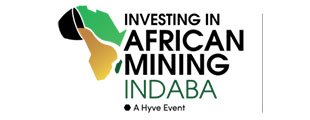Coal, uranium regarded as critical minerals in South Africa – Mantashe
South Africa’s definition of critical minerals is not limited to minerals used in the green economy and includes coal and uranium, says Mineral and Petroleum Resources Minister Gwede Mantashe.
Speaking at the Investing in African Mining Indaba in Cape Town earlier this month, he noted that any limitation would mean that South Africa would be using “the standards set by others”.
“It is about what is critical to us.”
He added that each country around the world had its own definition of critical minerals, with that definition sometimes linked to what the country needed but did not have readily available.
Mantashe said coal was vital for South Africa in terms of the sector’s high employment numbers and its use in electricity generation, with uranium an essential component of nuclear power generation.
At a later media briefing, Minerals Council South Africa CEO Mzila Mthenjane concurred that coal was indeed a critical mineral for South Africa, considering that it was used to produce 90% of the country’s electricity.
“What is critical for country X is not necessarily critical for country Y,” noted Minerals Council chief economist Hugo Pienaar.
He said that South Africa would probably need two lists of critical minerals, with one focused on current needs and the other on future needs – “some 15 years from now” – with coal “tops” on the list of current needs, but perhaps moving down the rankings on the future list.
Sharing a stage with Mantashe on the topic of critical minerals, Manganese Metal Company executive chairperson Bernard Swanepoel highlighted that it was “problematic to try and have the world’s longest list of critical minerals”.
He said there were only two minerals in which South Africa was truly competitive – platinum group metals and manganese.
“We should passionately defend our platinum industry. If we do not do that, we run the risk of it becoming another gold story.”
Also on stage was Mintek CEO Dr Molefi Motuku. He outlined the progress made by the task team developing South Africa’s critical minerals and metals strategy.
He said the draft strategy document had been completed, and that it was now the subject of an “interdepartmental consultative process”.
The most difficult part was developing an implementation plan.
“We are working on that.”
Motuku also noted that there was no universal consensus on criticality.
“It is country-specific; it is region-specific; it is context-specific.”



